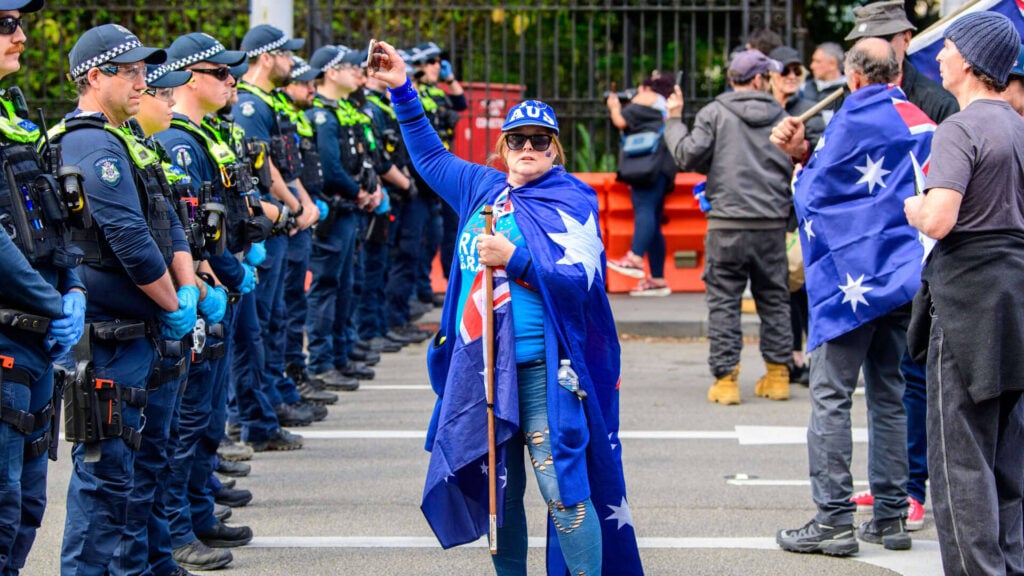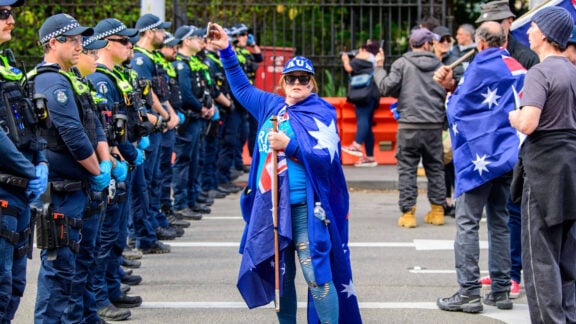As someone who has defended multiculturalism and a significant immigration intake I cannot help but despair at the hypocrisy surrounding recent debates about the size of the immigration intake.
The Prime Minister pointed out that “good people” attended the anti-immigration marches. But what are the real concerns of these “good people”. I think that many express concern about the level of immigration but disguise their concerns about the ethnic makeup of the immigration intake for fear of being called racist.
As a result, instead, of an honest discussion about this underlying issue they narrowly focus on opposition to large immigration based on a tenuous connection to infrastructure and public housing availability.
This fear of being labelled racist has meant that debate around a balance in the immigration intake remains as a latent yet potent concern that I think will ultimately blow up as it has in so many countries around the world.
So, can a balanced immigration policy be defended and on what basis?
A bit of personal history might help in providing an answer.
My father arrived in Australia in the 1950’s ahead of his family which came 3 years later. Just imagine the post war despair from the abject poverty in Cyprus and much of Southern Europe and the heart wrenching decision to leave your family and village, to risk all, to come halfway around the world in the hope of a better life.
These migrants from Europe in the 50’s 60’s and 70’s worked long hours and helped build Australia, in our factories, in the Snowy Mountains, in new shops and restaurants. They changed Australia. They were able to come because Australia had opened migration to Northern Europeans and later Southern Europeans.
They worked hard but maintained elements of their culture and added to ours. They, and especially their children, integrated into our social, economic and political structures.
But here is the rub. Not one of those early migrants that gave so much to this country (including my father) would have been accepted under Australia’s current immigration policies.
My father’s education level, his skill level, his lack of English, all would have ensured that he did not get in under current rules. The critical factor was that Australia was targeting Europe exclusively for its migrant intake.
Our current immigration policy is based on a non-discriminatory system. Everyone is graded on points and those with the highest scores get to come no matter what part of the world they are from. Sounds fair. But what is the practical outcome of this policy?
As far back as 2019 I argued that this points system favours migrants from Asia, India, China, and the Middle East. They have many middle or lower middle-class citizens who speak English, are youngish, well-educated and have skills. They apply to come to Australia because of the additional economic and “freedom” benefits of living in a Western advanced democracy.
Of course there are citizens in Europe, the US and the UK who could easily also get in on the points test system, but they do not apply. The highly skilled well educated English speakers in these countries are generally doing nicely and already live in a Western democracy.
We hear a lot about the US issues with its Mexican border, but what is little known is that the US has a significant level of immigration from the rest of the World. The US has traditionally created balance by imposing a limit from any one country of about 5%. This does not mean that their migration policy is discriminatory. It means they manage the mix and give people from all parts of the World a chance.
Australia should keep its points system, but it should be applied in various regions with a quota for each region. More people would thus be given a chance of coming from regions of the world that are currently under-represented in our intake. Many such citizens have traditionally integrated well and share our liberal-democratic values. If Jacinta Nampijinpa Price had framed her concerns around having a balanced immigration intake rather than attacking Indian migration as being favoured to help the ALP (which it is not) she may have made a sensible contribution.
Even if some migrants from currently underrepresented regions do not rate highly on the points system, they are valuable additions as Australia also needs people with lower skills in the building, manufacturing and services industries.
An honest debate on a balanced migration policy is needed. Those who throw around the word “racist” to anyone who raises these issues should understand that our so-called non-discriminatory, points-based system discriminates against all lower-skilled workers with limited English. And in its practical application it discriminates against many countries that have traditionally been Australia’s migration sources.
Our current policy has skewed our migrant intake to the skilled and educated from regions of the world with more depressed economies than our own. How is this principled or in line with the Australian value of a fair go for all?
*Theo Theophanous is a Commentator and Former Victorian Government Minister.









